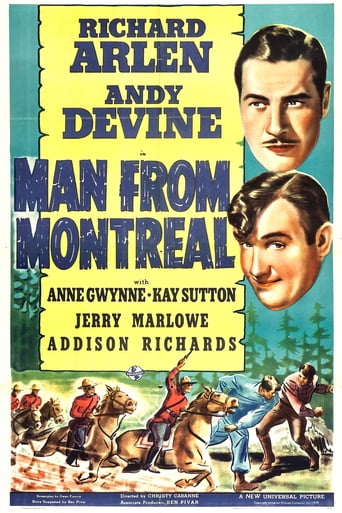
The Man From Montreal is a lively entry in Universal's Richard Arlen-Andy Devine action series. The stars are cast respectively as fur trapper Clark Manning and constable Bones Blair, who carry on a friendly rivalry in the Canadian Northwest. Our heroes team up in the final reels to put the kibosh on a fur-smuggling racket, permitting Universal to plunge deeply into its stock-footage files. The leading ladies this time out are Anne Gwynne and Kay Sutton, their billing status indicating which one of the two ladies will land Clark Manning in the last scene. Incredibly, the Arlen-Devine series lasted for 14 films, none of them classics but all of them worthwhile Saturday-matinee fare.
... View MoreThe movie is currently not available onine

